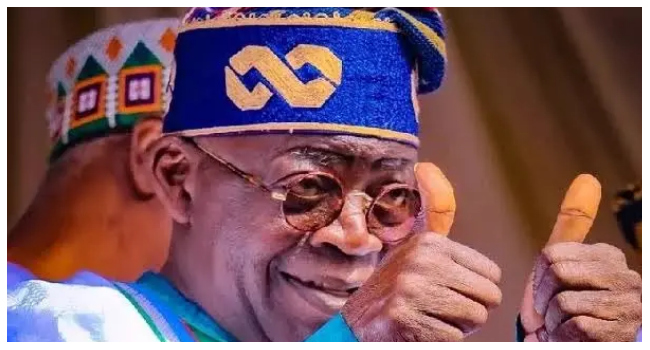June 12: ‘Call Me Names’, Tinubu Promises To Defend Free Speech.
President Bola Tinubu committed on Thursday to preserve Nigerians’ democratic right to free expression.
During his Democracy Day speech at the National Assembly Complex in Abuja, the president instructed security officers not to pursue people who criticised his administration’s perceived unpopular policies.
“Democracy requires a fair degree of tolerance for harsh words and stinging insults,” Tinubu said in front of a retinue of Senate and House of Representatives members.
“Call me names, call me whatever you will, and I will still call upon democracy to defend your right to do so.”
Tinubu urged his political supporters and parliamentarians to prioritise dialogue over dictatorship, persuasion over oppression, and rights over power.
“Be tolerant and broad-minded in your legislative action regarding speech and civil liberties,” he told the Senate.
Several journalists and individuals have been tormented by their criticisms of the Tinubu administration, as well as allegations that they violated the Cybercrime Prohibition Act 2015 and other existing laws.
The Tinubu administration has faced widespread criticism for allegedly violating Chapter 4, Section 39 (a) of the 1999 Constitution, which states that “every person shall be entitled to freedom of expression, including the right to hold opinions and to receive and impart ideas and information without interference”.
Daniel Ojukwu, Adejuwon Soyinka, and Segun Olatunji, among others, have spent days in the custody of state-sponsored security agents during Tinubu’s first two years in office, a development described as an ugly trend by pro-democracy activists, as well as professional bodies Nigeria Union of Journalists (NUJ) and the International Press Institute (IPI Nigeria).
Many civil organisations have also raised the alarm about the Gestapo-style arrest of journalists by state security officials, claiming that it is a relic of the past and reminiscent of the dark days of military rule. They claimed the unpleasant development undermined journalistic freedom 26 years after Nigeria switched from totalitarian to democratic governance.
Tinubu, who will take office on May 29, 2023, promised to defend the right to free expression in his third Democracy Day speech.
‘Do not be frightened to hear a harsh remark said about you. Sometimes, a politician receives valuable advice from his most ardent opponents. We must not seek stillness, as the imposed silence of stifled voices leads to turmoil and ill will, which do not reflect the true harmonics of democracy over time.
“While vicious defamation and libel should not be tolerated, no one should face injustice just for writing a negative report about me or calling me names.
“Our country isn’t perfect, but it is strong. Our democracy is not invincible, but it is thriving. And this implies that our dream of a successful, happy nation is still achievable and worth striving for,” he stated.
The president also denied the opposition’s claim that Nigeria was becoming a one-party state.




